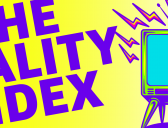The UK Gambling Commission (UKGC) has launched a consultation period with the aim of altering how problem gambling data is collected.
Through the information collected, the Commission will aim to develop a new research standard for data of this kind.
A key part of the UKGC’s role as the country’s regulator is to provide the government with accurate data that paints a clear picture of the state of gambling-related harms.
How has data been collected so far?
At the moment, the UKGC collects data on problem gambling statistics from adults in the UK. When carrying out its research, the Commission adheres to the Government Statistical Service’s guidelines. These are mapped out in the Code of Practice for Statistics.
Often, the UKGC has also created guidelines and regulations based on data from third-party researchers – such as YouGov.
“Ambitious” about raising the standards of research and data collection
In a statement, the UKGC had the following to say about its research methodology consultation.
“The Commission is ambitious about improving the quality, robustness and timeliness of our statistics. We therefore set out a commitment in our 2020/21 Business Plan to review our approach to measuring participation and prevalence and publish conclusions.”
Criticism has been directed at the current available information on problem gambling in the UK. The House of Lords has been one particular group calling for change.
Upon researching the socioeconomic impact of unhealthy gambling habits, Lord Grade of Yarmouth’s committee called for “more reliable facts” that would help to guide decisions.
UKGC also issues reminder to online gambling operators
In the wake of another national lockdown in England, the UKGC also issued a reminder to online gambling operators about the need for extra player protection vigilance.
The Commission warned that besides people spending more time at home, the “length of the pandemic” period will also lead to more anxiety and concerns about the future.
The UKGC said that it expects operators to:
- Follow the guidance that was issued at the beginning of the first lockdown in March 2020;
- Not use the pandemic for marketing and to be extremely careful when it comes to product cross-selling;
- Take extra care with new customer onboarding, while also bringing the current situation into context when performing affordability checks;
- Engage more with customers via email, as well as directly intervening when users show signs of problem gambling.
The Commission has also said that it will look to “permanently strengthen regulatory requirements”, along with monitoring “operators and consumer behaviour very closely”.




